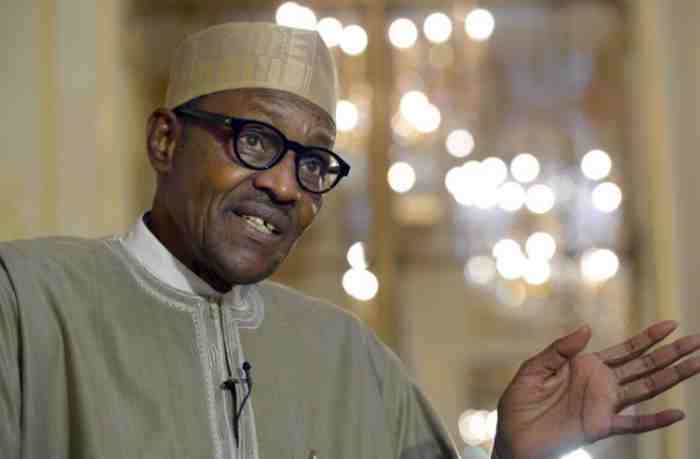Open Defecation: Will Nigeria be cleaner by 2025?
Recently, President Muhammadu Buhari declared a state of emergency on Nigeria’s water supply, sanitation and hygiene sector. He said this is imperative to reduce the high-prevalence of water-borne diseases in different parts of the country. The president said statistics on open defecation, access to safe drinking water and sanitation in the country was disturbing and […]

President-Muhammadu-Buhari-
Recently, President Muhammadu Buhari declared a state of emergency on Nigeria’s water supply, sanitation and hygiene sector.
He said this is imperative to reduce the high-prevalence of water-borne diseases in different parts of the country.
The president said statistics on open defecation, access to safe drinking water and sanitation in the country was disturbing and thus sought the combined efforts of state governments towards achieving the 2025 goal.
The call to action aims to focus on improving hygiene, changing social norms on sanitation and completely eliminating the practice of open defecation in the country by 2025.
It is no longer news that Nigeria is among the countries with the highest number of people practicing open defecation. As of 2015, statistics showed that Nigeria has about 46 million people practicing open defecation.
Speaking yesterday in Abuja, the Minister of State for Environment, Ibrahim Usman Jibril, said access to sanitary facilities remained a mirage to a vast majority of Nigerian citizens.
Jibril, who was represented by the Permanent Secretary, Leon Ajiboh, was speaking at a briefing to mark the 2018 World Toilet Day with theme ‘When Nature Calls’.
He noted that 4.5 billion people in the world live without safe toilet and 892 million still practice open defecation, as many people still use the bush and water bodies as their regular means for excreta disposal.
While noting that one of the major consequences of poor excreta disposal is the high rate of diarrhoea disease, he said the persistent re-occurrence of cholera outbreak in some states and occurrence of other excreta diseases were also manifestations of inadequate toilet facilities.
The minister, however, said government is committed to addressing the sanitation challenges including ending open defecation in the country and ensuring proper management of excreta.
Speaking on the declaration of state of emergency on water, sanitation and hygiene by President Buhari, the minister said the Ministry of Environment, in collaboration with other stakeholders, is reviewing the National Environmental Sanitation Policy including policy guideline on safe excreta.
“The community-based waste management programme as well as the Clean and Green Programme of the ministry are aimed, among others, at promoting the provision of safe and adequate toilets across the country, particularly in public places,” he said.
“When nature calls, please think “Health and Safe Environment” and respond in an environmentally friendly manner,” he said.
Speaking, Registrar of the Environmental Health Officers Registration Council of Nigeria (EHORECON), Dr. Dominic Abonyi, said sanitary inspection offers a veritable platform for detecting and correcting defects and establishing sanitation service needs.
He said individuals can afford to provide for themselves and communities’ toilets that do not have access to flies, devoid of fresh faeces and odour.
He, however, emphasized on the need to encourage health officers to enforce and regulate sanitation exercise in communities.
A professor at the Faculty of Environmental Sciences, Nasarawa State University, Keffi, Prof Nasiru Idris, while reacting to the state of emergency, said the implication of the declaration for Nigeria was to achieve Goal 6 of the SDGs – that is clean water and sanitation – as well as Goal 3, which is good health and well-being.
“The declaration will go a long way especially at states level where some states in the country have neglected these sectors for a long time,” he said.
He explained that Nigeria can end open defecation by involving all stakeholders at various levels in disseminating information to the populace on the implications and long term effect on the public health.
“Government and the private sector can provide toilets at various locations as is the practice in developed countries. Provision of sewerage system in the country will also help in the transportation of the waste product within each municipality.
“The Nigerian government can play her role through initiating a National Development Plan within the specific time frame but with the involvement of the private sector,” he said.
He further stated: “Nigeria can become a cleaner country by reintroducing monthly sanitation exercise at all levels and strict measures should be applied in order to comply with it. Finally the government should practice what it preaches.”
